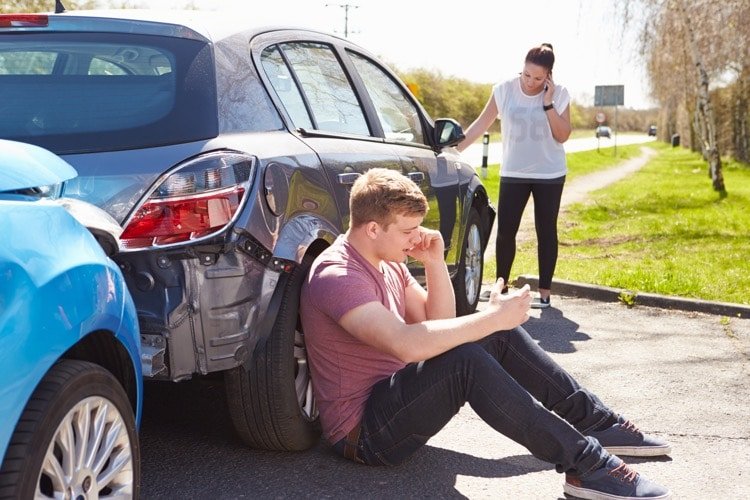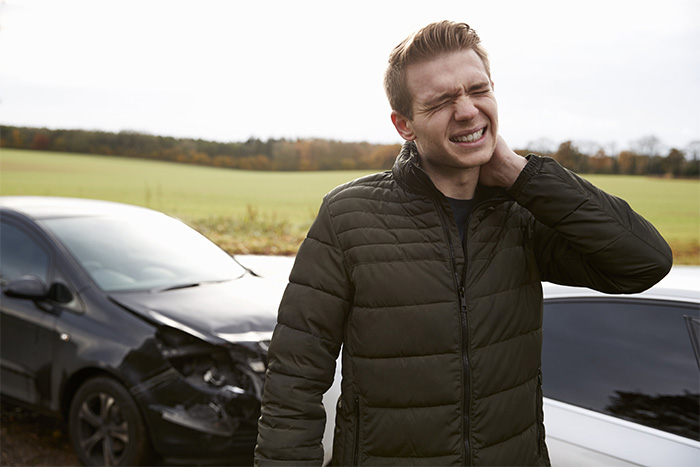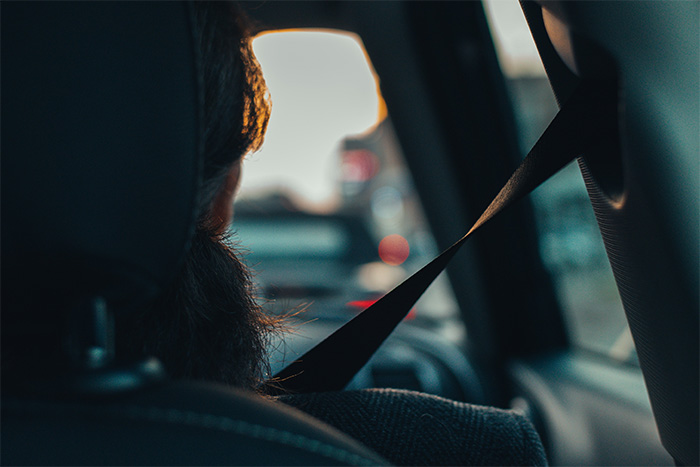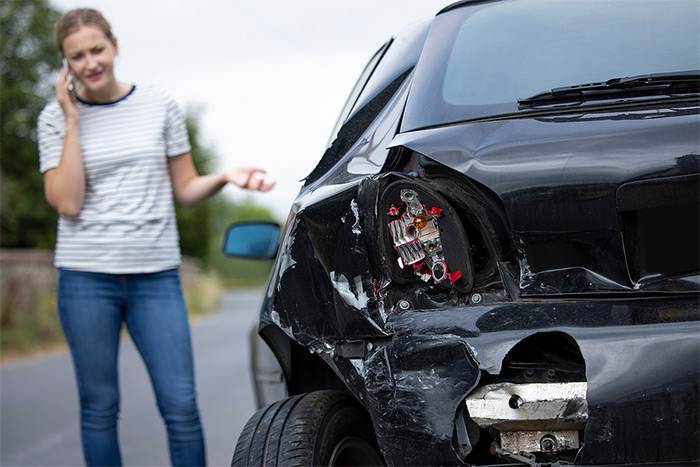



 If there’s one thing worse than being in a car accident, it’s finding out that the person who caused that accident doesn’t have insurance.
If there’s one thing worse than being in a car accident, it’s finding out that the person who caused that accident doesn’t have insurance.
You’re in pain. You physically can’t go about your life, go to work or school, do things around your home, take care of the kids, go out with friends. You’re facing this huge financial burden that’s only getting bigger.
And now, you’re wondering who’s going to pay for it all.
So what happens if the person at fault in an accident has no insurance? If the at-fault party does not have insurance, you will have to cover the losses through your own insurance company. If you have uninsured motorist coverage, this should take care of it. You will be able to file a compensation claim with your insurance company or file a lawsuit against the negligent party.
You may be thinking, after the accident, do insurance companies go after uninsured drivers? Insurance companies have the right to pursue a claim to recoup your losses and go after uninsured drivers. Most of the time, an insurance company is not going to spend the time and money to go after an uninsured driver. Your own insurance claim is the best bet in these situations.
What happens when the driver who caused your crash is uninsured depends on so many factors. Do you have auto insurance? Do you have medical insurance? Were you a passenger or a driver? How many vehicles were involved in the crash? What choices did you make setting up your auto insurance policy, if you have one?
Because there are so many factors, it’s hard to say how things will play out unless we know more about the crash. In any case, there are three processes you need to figure out:
 Navigating the claims process is tricky enough without any added complications. Often people ask what happens if the person at fault in an accident has no insurance? In a situation where the at-fault driver is uninsured, things become even more complex. You’re going to need help with this one.
Navigating the claims process is tricky enough without any added complications. Often people ask what happens if the person at fault in an accident has no insurance? In a situation where the at-fault driver is uninsured, things become even more complex. You’re going to need help with this one.
If the crash involved multiple vehicles but the driver primarily at fault for the collision is uninsured, you might be able to seek compensation from another driver’s insurance.
For example, a passenger might be able to get money damages from the auto insurer of the person driving him or her, even though another driver caused the crash.
Whether or not this scenario applies to your situation depends on the details of your crash. In any case, our nearby attorneys know where to look so we can help you get all the coverage available to you.
The experienced car accident lawyers near you at Console and Associates have broken down a few basic scenarios below to help you understand what to expect. But to truly offer you the guidance that best fits your unique situation, we need to know the details of your crash.
The best thing you can do in this situation is to hire experienced legal representation. You need someone to be on your side throughout this ordeal, someone to explore every avenue to ensure you get the compensation you need to recover.
 After any accident, your health needs to be your first priority. It’s essential that you get the medical care you need as soon as possible. Waiting forces you to endure unnecessary pain. A delay in getting treatment could even make your injuries worse.
After any accident, your health needs to be your first priority. It’s essential that you get the medical care you need as soon as possible. Waiting forces you to endure unnecessary pain. A delay in getting treatment could even make your injuries worse.
In the most horrifying situations, seemingly minor injuries turn out to be life-threatening. Waiting to get care could mean that you don’t find out how serious the injury is until it’s too late.
Of course, with the outrageous costs of medical care, paying the bills that arise from seeking medical treatment isn’t just an afterthought. The average emergency room visit costs more than the average month’s rent, according to The Washington Post.
If your injuries are more severe, you could be looking at tens of thousands of dollars or more.
Who’s going to pay for the medical care you need? That varies depending on the part you played in the accident.
New Jersey is a no-fault state. That doesn’t mean that the driver whose careless actions behind the wheel caused this crash isn’t at fault. Instead, no-fault refers to the laws about insurance coverage of medical bills.
In a no-fault state, each person injured in an accident must go through their insurance coverage to get their medical bills paid.
The rationale for no-fault laws is that accident victims can get medical care and bills paid more quickly. They don’t have to wait for insurance companies to figure out who is at fault if their insurer pays, anyway.
In practice, no-fault laws can give rise to complicated situations. Things get especially complex when one or more people involved in the crash don’t have insurance, either because they were breaking the law or through no fault of their own.
 As a New Jersey driver, you’re required to purchase auto insurance. Without coverage, you can’t legally drive according to state laws.
As a New Jersey driver, you’re required to purchase auto insurance. Without coverage, you can’t legally drive according to state laws.
That’s a good thing when it comes to accidents in a no-fault state. You don’t have to depend on the driver who caused the collision to have enough coverage to pay for your medical care. Your own auto insurer would be the one to cover your bills, regardless. For insured drivers in NJ, in terms of getting your medical bills paid, it doesn’t matter that the other driver didn’t have insurance.
Whether or not the dangerous driver had insurance, a portion of your own auto insurance policy called Personal Injury Protection (PIP) would be responsible for your medical bills. Even necessary auto insurance policies sold in NJ must have at least $15,000 in PIP benefits. Most drivers with a standard policy choose a PIP coverage limit of $250,000, according to the New Jersey Auto Insurance Buyer’s Guide. Some drivers want to purchase even more coverage.
When PIP pays your medical bills, you will have some financial obligations, too. You must pay a deductible. This is a set amount of money that you must pay before your insurer begins paying. The deductible ranges from $250 to $2,500, depending on your selections when setting up your policy.
You will also be responsible for 20% of the first $5,000 in medical bills. The auto insurance company picks up the other 80% of the costs. All in all, you can expect to pay between $1,200 and $3,000 toward your medical care, if the bills exceed $5,000. Beyond that, your auto insurer pays the bills until you finish treatment or run out of PIP coverage.
One exception to PIP paying your medical bills is if you elected to have your health insurance, rather than PIP, as your primary coverage. Making this choice can save you money on your auto insurance premiums, but it’s not in your best interests.
When you get into an accident, having health insurance primary means that you are paying for PIP coverage you can’t use. You will most likely end up paying more money out-of-pocket than you would under PIP since most health insurance policies have higher out-of-pocket maximums than PIP does. Your health insurer may limit the providers you can see. If you do get a settlement, you might end up having to pay tens or hundreds of thousands of dollars out of any settlement you attain back to your health insurance company.
Getting hit by an uninsured driver doesn’t affect whether PIP or health insurance is the primary party responsible for your medical bills. That choice is made long before the crash occurs, when you set up your own auto insurance policy.
 Car accidents in which you were a passenger, not the driver, can get more complicated. The first factor to consider is whether you have auto insurance of your own.
Car accidents in which you were a passenger, not the driver, can get more complicated. The first factor to consider is whether you have auto insurance of your own.
If you own or regularly drive a car in NJ, you should have an auto insurance policy. If you are the passenger during an auto accident, even though you weren’t the one driving, even if you weren’t using your vehicle, you must open a claim for medical benefits with your auto insurer.
The situation would be the same as if you were an insured driver. You would be covered under the PIP portion of your auto insurance unless you chose health primarily. You will have to pay the deductible (between $250 and $2,500) and copayments (20% of the first $5,000). Your insurer will cover the rest.
What if you’re not a driver? It’s certainly not against the law to ride in a car without having auto insurance. Under no-fault laws, passengers without insurance can be left without immediate coverage.
The first thing our car accident attorneys near you would do is make sure that you don’t have auto insurance coverage from another source. Perhaps you don’t drive, but you live with a family member who does and who has insurance. You may be considered a resident relative, and therefore legally entitled to benefits through your family member’s auto insurance policy. (Using these benefits should not raise your family member’s insurance rates since the policyholder wasn’t at fault for the crash.)
If you have no auto insurance and you don’t count as a resident relative of any NJ driver, you won’t have PIP coverage. If you have health insurance, your health insurer will pay for your medical bills. You may be in the same position as a driver who opted to make their health insurer the primary coverage for medical bills. In this instance, you will probably be stuck footing more of the bill yourself than you would under PIP, as unfair as that may be. You may be limited to doctors in a certain network. If you get compensation from a car accident settlement, you might have to pay some of that money back to the insurer. Still, the important thing is that you can get the care you need. Your attorneys will take care of getting you the maximum money needed to make you whole.
What if you don’t have health insurance, either? As many as 30% of New Jersey residents in some cities still don’t have health insurance, according to NJ.com. Whether you’ve opted out of buying health insurance due to high premiums or simply have a temporary lapse in coverage due to a job change or other event, you weren’t prepared for this situation. Now you’re suddenly facing a mountain of unexpected medical bills, all from an accident that you didn’t cause in any way, and you have no way to pay for them. In a situation like this, we would secure coverage for you from the New Jersey Property-Liability Insurance Guaranty Association, or NJPLIGA.
NJPLIGA is a safety net designed to mitigate the effects of loss on claimants and policyholders who, through no fault of their own, find themselves without coverage. That’s you. It’s not your fault that you were injured or that you don’t have PIP benefits available to you.
NJPLIGA can help with your medical bills, but don’t expect a claim with NJPLIGA to make you financially whole. To get the full amount of money you deserve, you will still need an attorney to fight for maximum compensation from whatever insurance companies are involved in the accident. That may include the driver whose car you were riding in.
 Pedestrians and cyclists face a similar dilemma to passengers. If they have auto insurance, they must open a medical claim with their own insurer to use their PIP benefits. It might seem strange to call your auto insurance company when you weren’t even in a vehicle, but that’s how the process works in a no-fault state.
Pedestrians and cyclists face a similar dilemma to passengers. If they have auto insurance, they must open a medical claim with their own insurer to use their PIP benefits. It might seem strange to call your auto insurance company when you weren’t even in a vehicle, but that’s how the process works in a no-fault state.
If you don’t have auto insurance, our attorneys will go through the same process of searching for coverage for you as we do for uninsured passengers. We’ll find out if you qualify as a resident relative of someone who does have insurance and what health insurance coverage if any, applies. If we exhaust all other avenues, then we will seek coverage for you through NJPLIGA. The important thing is that you will be able to get medical care.
Motorcycle accidents are all too common, and often, very serious. If you’re on a motorcycle at the time of the collision with an uninsured driver, you may be distressed to learn that you can’t count on PIP to cover you.
Even basic NJ auto insurance policies include PIP, but motorcycle insurance policies don’t. This may seem backward. Motorcycles leave riders with fewer protections, so they’re more likely to suffer serious injuries in a crash. Unfortunately, that’s the law.
Motorcycle Insurance in NJ
New Jersey requires motorcyclists to carry insurance, so you might think you’re covered.
In fact, motorcycle insurance policies are only required by law to have bodily injury insurance (for injuries to other people) and property damage insurance for accidents you cause.
Any medical payments coverage or other benefits are considered additional coverage options that you must buy on top of your required policy, but many motorcyclists don’t realize this.
If you drive a car as well as riding a motorcycle, you can count on PIP benefits, right? Wrong! PIP applies if you’re driving, riding in a car, walking, or on a bicycle, but it does not apply if you were on a motorcycle. Auto insurance policies list injuries sustained while riding motorcycles as exceptions.
Treating injuries from a motorcycle accident will have to go through your health insurance. Fortunately, you have the legal right to pursue a lawsuit against a driver who hit you. But if that driver doesn’t have insurance, it might be difficult ever to get what you deserve. You should speak to an attorney after a motorcycle accident caused by another driver so we can figure out if there is coverage available.
If you’re the driver or the owner of the vehicle, your injuries aren’t your only concern. You also have vehicle damage to deal with. How you go about handling property damage caused by an uninsured driver depends on your own insurance coverage.
 You want to think that the driver who caused your crash would also be the one to pay for the damage. That would certainly make things easier on you since you wouldn’t have a deductible to pay in that case. But when the driver is uninsured, your best option may be to recoup the money for the property damage from your own insurer.
You want to think that the driver who caused your crash would also be the one to pay for the damage. That would certainly make things easier on you since you wouldn’t have a deductible to pay in that case. But when the driver is uninsured, your best option may be to recoup the money for the property damage from your own insurer.
Collision insurance is the coverage that you purchase under your auto insurance policy to pay for damage to your vehicle that results from an accident. You may also have an option to get compensation for your damaged car from any uninsured motorist property damage coverage you have.
You can use this coverage when you can’t or would rather not go through the at-fault driver’s insurance. In your case, because the other driver was uninsured, you might not have another choice for getting your property damage expenses paid.
Drivers also use collision coverage for other reasons, such as if they were the ones at fault for the crash or if they would rather get their property damage taken care of quickly than wait for the other driver’s insurer to handle the situation.
The good news about going through your own collision insurance to get your car fixed is that it typically takes less time than it would if you went through the other driver’s policy. Your insurer is required to cover your property damage in the event of a collision, regardless of who is at fault.
Another driver’s insurer, on the other hand, only has to pay for the property damage if the other driver is at fault. Often, an insurer will drag its feet in accepting responsibility for a crash and paying for the other driver’s property damage. This means you might get your car fixed faster than you would have if the driver at fault was insured and you chose to have their liability insurance pay for the damage.
The bad news is that to go through your insurance policy, you will need to pay a deductible. This out-of-pocket expense can be costly. The standard collision deductible is $750. If you agreed to raise your deductible in exchange for lower premiums, you could be stuck paying much more.
Accident victims often ask our car accident lawyers how much money they will get for a totaled vehicle. Totaled means that the insurance company has determined that the car is a total loss. In other words, the cost of repairing the damage exceeds the value of the vehicle or is so much that the vehicle is not worth fixing.
It can be hard to hear that your car is totaled. It can be even harder when the value the insurer is placing on the car is lower than you anticipated.
Your insurance company is only required by law to compensate you up to the market value of the vehicle. That means that it doesn’t matter, legally speaking, that your car is your “baby” or that it’s your only means of transportation. All that matters to the insurer is what the cost would be to buy that car, that model, that make, that year, and that condition, right now.
Even if you purchased your car recently, there’s a good chance that the value of the vehicle has depreciated. You may not get back as much money as you paid for the car. This situation is especially frustrating when you haven’t had the vehicle very long.
If you own your car outright, you will get a check from your insurer for the market value of the vehicle, minus the deductible. This value is often less than the amount that you personally would place on the vehicle. You might find it difficult to replace your vehicle with only the money you got from the insurance company.
If you financed a car, the money might end up going directly to your financing company. Depending on how much you owe and how much the car is worth, you might not get any money from the insurer at all.
Some accident victims wind up getting less for their financed cars than they owe, and they have to continue making payments on a car they no longer have. You can avoid this happening by making sure you have gap insurance in place whenever you finance a vehicle. Unfortunately, for crash victims never knew they needed this coverage, it’s too late for it to help now.
If you’re fighting with an insurance company over property damage and still getting nowhere, leave it to us. We’ll help you get your car fixed.
We’ll help you understand what your rights are and what legal avenues are open to you. We do this as a courtesy to our clients, at no charge, but not because we profit from it in any way. We do it because helping you get your life back on track, in every way we possibly can, is simply the right thing to do.
Until you get into an accident, you might think that if PIP pays for your medical bills and collision insurance covers any property damage, you’re all set. What more coverage do you need?
Once you’ve actually been through a collision, you realize how much harm you truly suffer in a crash. PIP may pay your medical costs, but not your deductible and copayments, any unapproved procedures, or any bills over your policy limits. It may even compensate you for some of your lost wages if you purchased extra coverage. But the pain you experience each day, the loss of your quality of life, the opportunities you are missing out on as you focus all of your efforts on a difficult journey to rehabilitation, who is going to pay for all of these very real damages?
In auto insurance policies in no-fault states, uninsured motorist benefits include the following:
When a driver with no insurance causes the crash, your uninsured and underinsured motorist coverage takes the place of that driver’s nonexistent insurance policy. You would seek compensation through your own policy that you would otherwise have been suing the other driver for. Filing a UM claim with your own insurer can get you the money you need for damages such as:
If you don’t have insurance, you may be eligible for compensation from UM coverage under NJPLIGA. An attorney can help you figure out if you can receive benefits.
 Since it’s your own insurance company paying the benefits, you might think that getting compensation under UM benefits is going to be easy. Many policyholders believe that their insurance company is on their side until they actually need the benefits they’ve paid for.
Since it’s your own insurance company paying the benefits, you might think that getting compensation under UM benefits is going to be easy. Many policyholders believe that their insurance company is on their side until they actually need the benefits they’ve paid for.
Unfortunately, your auto insurer isn’t just going to hand over the money you deserve. To get the full amount of money you deserve, you need to file a claim or lawsuit, just as you would in a case against another driver.
Our attorneys have seen auto insurers drag uninsured motorist claims out for years, at their own policyholders’ expense, just to delay paying what the victim deserves. Bad faith is the term for this kind of behavior. It’s particularly distressing that the insurer’s actions are only hurting the company’s own policyholder.
Accident victims need support more than ever when their insurer is the one preventing them from getting what they deserve. That’s why we stick by our clients throughout the fight to get what’s theirs rightfully. We’ve gone to the Supreme Court of New Jersey to force an insurer to pay what it owed our client.
Too often, accident victims find themselves in a situation where there’s no insurance coverage from the at-fault driver because that driver is unknown. The driver’s careless actions behind the wheel caused the collision, and then they sped away, leaving you injured and helpless.
Hit and run accidents are particularly heinous situations. The driver who fled the scene committed a crime, and if caught, can face serious penalties. But even if that happens, you need to pursue a lawsuit to get the money you deserve.
The hit and run driver losing their license or going to jail will not help you recover from your injuries. This will not pay your medical bills or make up for lost income. The civil lawsuit, not the criminal charges, is the legal recourse that will directly help you.
If you don’t know who the driver who hit you is because that person fled the scene, your uninsured motorist coverage typically will apply, just as it would if you knew the driver’s identity but that driver was uninsured. There is usually no deductible for a claim against your uninsured motorist bodily injury coverage, though you may still have to pay deductibles for other benefits, like PIP and collision coverage.
If the person who caused your crash had no insurance, they could face a number of potential penalties: fines, driver’s license revocation, vehicle impoundment, and potentially even jail time. Another risk of driving without insurance is the possibility of an insurance company seeking financial repayments for any payout they make to the victim. For example, it’s possible that the uninsured driver who hit you could face legal action from your insurance company if your insurer has to pay UM or UIM benefits to you.
When the auto insurance company sues the uninsured at-fault driver for the financial loss of the benefits it had to pay you, this is called subrogation. Even though the insurance company is legally allowed to do this, insurance companies won’t always choose to go after the uninsured at-fault driver personally. In some instances, the insurer may decide a lawsuit against the uninsured driver isn’t worth the time, hassle, or resources. This is particularly common when the individual is unlikely to have the finances to pay the compensation they are seeking.
If you have uninsured motorist insurance or underinsured motorist insurance on your policy, you are entitled to these benefits in any accident in which that coverage applies. Your ability to get compensation through this coverage does not depend on whether the insurance company is able to go after the uninsured driver who caused your accident or whether they are successful in doing so.
Even if your auto insurance company is not able to go after the uninsured at-fault driver, they are still bound to uphold the contract they made—in the form of your auto insurance policy—to pay the promised benefits when a covered event occurs. Your insurance company can’t make you wait until it has gone after the other driver to receive these benefits. In that sense, it doesn’t matter to your claim whether or not the insurance company goes after the uninsured driver. You’re can receive UM benefits either way.
Handling a car accident that involves an uninsured or hit and run driver is complicated. Many policyholders don’t fully understand their coverage before the accident, according to the National Association of Insurance Commissioners. After the crash is no time to try to sort out the difficult jargon by yourself. You’re in pain and so many things are competing for your attention. More stress is the last thing you need.
An attorney at Console and Associates will review your policy at no charge. We’ll help you understand what your responsibilities are, how the claims process is going to work, and what legal options you have for pursuing compensation. There’s never a cost to speak to a licensed professional, either during your initial risk-free consultation or as an established client with your own dedicated legal team near you.
For all our clients, we cover the upfront costs of pursuing a claim, so there’s no financial burden to you. Our No Fee Promise means that you only pay us back for these costs or for our legal services when and if we succeed in getting money for you.
Take a look at what some of our happy Marlton clients have to say:
“I would like to personally thank Console & Associates for being an absolutely amazing law firm and helping me with my car accident lawsuit. They have been extremely helpful walking me thru all the steps involved and explaining and answering all my questions, of which i have had a great many. This being my first injury due to a car accident they have gone above and beyond in my opinion in all aspects. Not to mention Allison has been my main point of contact throughout most of the process and has always responded quickly and kindly to my constant deluge of emails. I can’t thank her enough!!”
Richard Santora, April 4, 2021, Rating: 5/5 ⭐⭐⭐⭐⭐
We have a 4.7 average and 126 reviews on Google
We’ve seen firsthand what a difference it makes to families affected by a car accident to have help, support, and a reason to believe that things will get better, even in the most challenging moments. Our New Jersey car accident attorneys are here to help provide that support as we serve as your partners in your pursuit of the compensation you deserve.
Your case evaluation is free, no matter what. If you choose to move forward with a claim, there’s no cost until we get results. So there really is no risk.
Give us the chance to help you. All it takes is a phone call. Call (866) 806-3125 for your free, private consultation.
1 Holtec Drive, #100
Marlton, NJ 08053
(856) 778-5500
494 Broad St #208b
Newark, NJ 07102
(862) 229-1137
